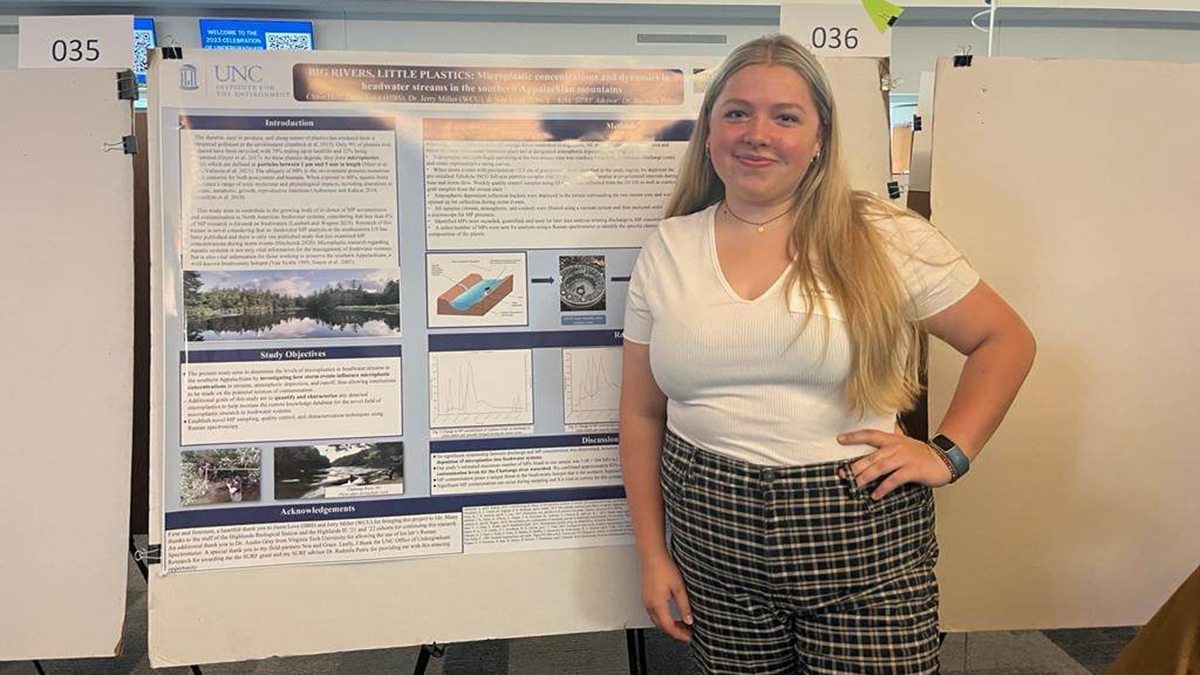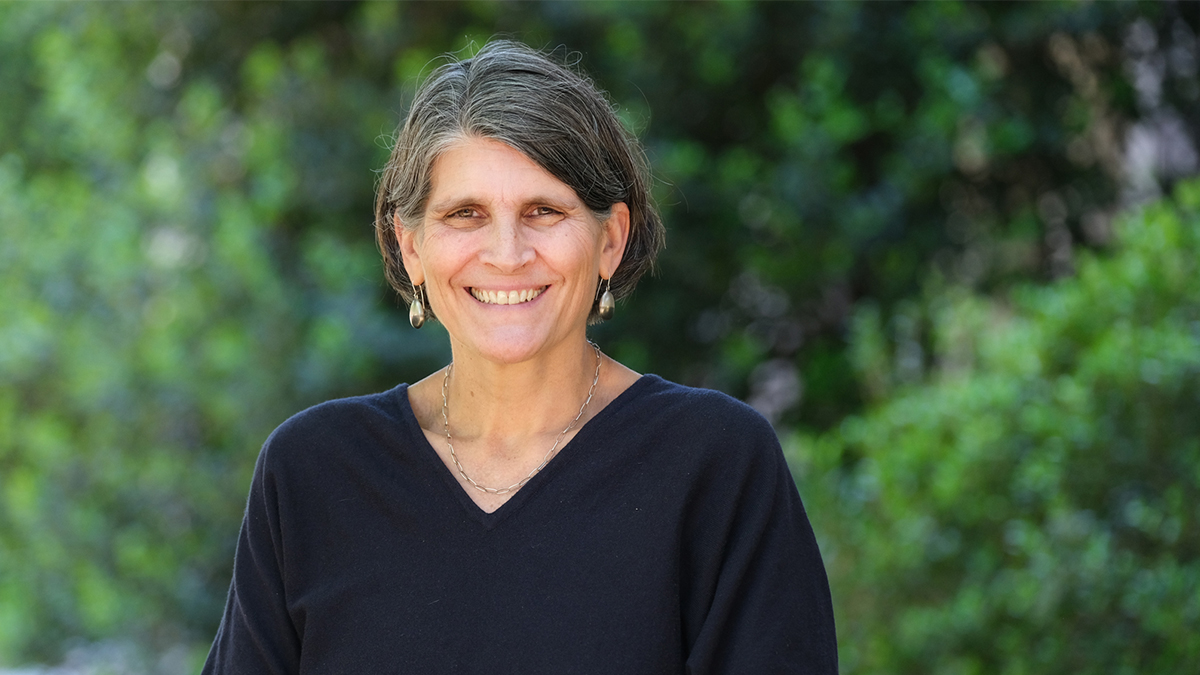#GDTBATH: Chloe Hall
Chloe Hall's goal was to determine if there are microplastics in local rivers and look for correlations between storm events and microplastic concentrations in the freshwater systems.

For Chloe Hall, receiving summer funding for her research meant she was able to return to the place she loves—the Appalachian Mountains.
Hall is a junior environmental science major at Carolina. Last year, she received a Summer Undergraduate Research Fellowship to continue her research that began in fall 2021 when she spent the semester at the Highlands Field Site in Highlands, North Carolina. The field site is an experiential education opportunity created by the UNC Institute for the Environment in partnership with Carolina’s Environment, Ecology and Energy Program.
“I had an entirely online freshman year, so when the time came to register for my fall courses for sophomore year, I was really ready to find experiential, hands-on heavy learning,” said Hall. “I heard about the field site program that the E3P school has, and I thought about how amazing that opportunity would be.”
Hall began microplastics research at the field site when a professor presented the idea as a focus for the group’s capstone. She and her classmates worked with Jason Love, a researcher and associate director of the Highlands Biological Station, where the field site is located. Their research investigates microplastic dynamics and concentrations in southern Appalachian watersheds.
“Microplastics are a very hot topic right now, but a lot of the research out there focuses on marine life and oceanic impacts. Not a lot of the research looks at freshwater systems,” said Hall. “We had to build entirely new methods for sampling for these plastics in the water.”
Her goal was to determine if there are microplastics in local rivers and look for correlations between storm events and microplastic concentrations in the freshwater systems. She said these two research aspects are necessary because analyzing watersheds in the southern Appalachians has implications for the entire region.
“The southern Appalachian Mountains are very important for freshwater ecosystems because they kind of serve as the water towers of the Southeast,” said Hall. “Anything that travels into the water there travels hundreds of miles down and can create a domino effect.”
Microplastics have a variety of negative impacts on the ecosystem. They can be toxic to microorganisms and organisms and can travel into groundwater and drinking water as well.
“They are everywhere, and they can even impact reproductive functions in freshwater organisms,” said Hall. “Doing research up in the mountains where all of these watersheds start can help to identify the source of pollutants.”
Last summer, Hall worked on the Cullasaja River in western North Carolina. She collected water samples during storm events and then analyzed the samples to quantify any microplastics found. These samples help Highland Field Site researchers look for correlations between the number of microplastics in the water and the timing of precipitation.
“We’re trying to link microplastic concentrations to storm events to see if there’s some sort of relationship with atmospheric deposition and determine if there are microplastics in rainfall or if they’re coming directly into the river,” said Hall.
She said that her SURF funding allowed her to continue pursuing this research and her career goals.
“I think it wouldn’t be possible for me to continue this work without that funding, so it’s really helping me in every way possible,” said Hall. “Career-wise, I would like to continue in hydrologic research because of this project that I joined, and I’m sure that the experiences I have this summer will be foundational to whatever I do in the future.”
Hall earned the Sustainable Carolina’s Excellence in Undergraduate Research top prize at the 2023 Celebration of Undergraduate Research at Carolina.
Read more about Hall’s microplastics research.




